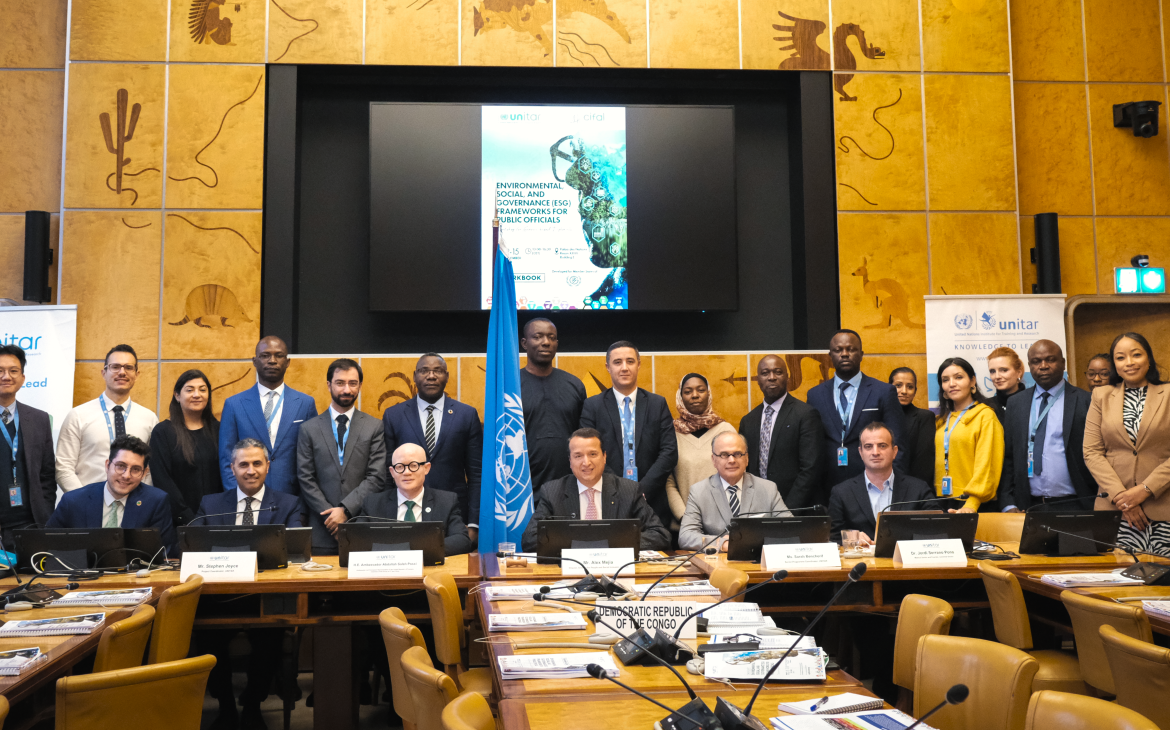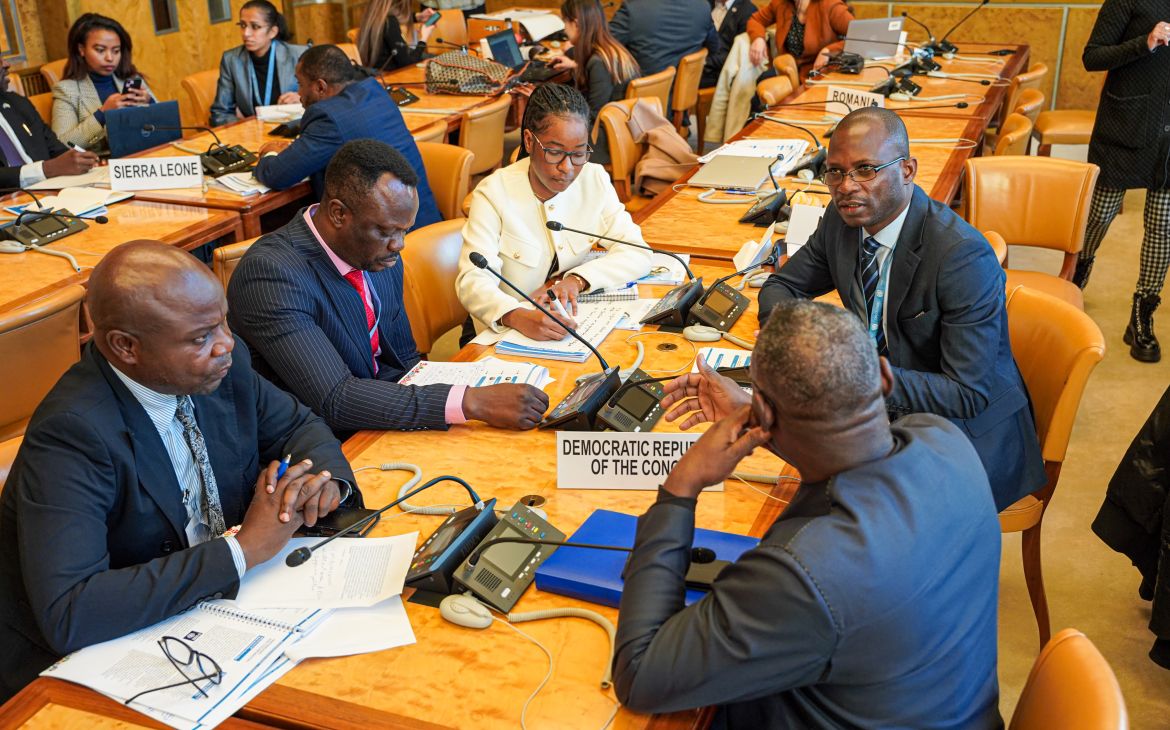12 December 2023, Geneva, Switzerland – UNITAR successfully concluded a four-day training on Environmental, Social, and Governance Frameworks for Public Officials at the Palais des Nations, bringing together 23 participants from 18 member-states of the Group of 77 and China (G77 + China). The workshop consisted of eight interactive sessions, led by world-class experts, including ambassadors, university professors and senior UN officials, all working to equip participants with the skills and knowledge necessary to impact ESG integration and sustainable development.
The workshop was inaugurated by H.E. Ambassador Abdallah Saleh Possi, Ambassador and Permanent Representative of the United Republic of Tanzania to the United Nations Office and other international organizations in Geneva, who discussed the importance of ESG issues in the enhancement of global decision-making and country-level actions and the unique role of ESG principles as essential components of sustainable development, the 2030 Agenda for Sustainable Development, and its three universal principles of human rights.
The first day featured Mr Alex Mejia, Director of UNITAR’s Division for People and Social Inclusion, delivering a session introducing the concept of environmental, social, and governance (ESG) and its relevance in the current political environment, which included an exploration of important factors surrounding ESG and an examination of the landscape of ESG regulation in Europe and global initiatives in this field. Ms. Amrei Horstbrink, Senior Specialist, Green Development and Climate Change Programme, Division for Planet, UNITAR, later delivered a session on environmental risk management and mitigation, and environmental policies and programmes that can be used to support environmental stewardship. Following these sessions, participants engaged in a group discussion, led by Dr Jordi Serrano Pons, medical doctor, specialized Family Medicine practitioner and founder of UniversalDoctor, on how public health challenges can be mitigated, in part, by promoting environmental regulation and best practices.
On the following day, Mr Michael Goldhaber, Senior Research Scholar and Programme Manager at NYU’s Stern Centre for Business and Human Rights, shared key insights on social factors and considerations related to ESG frameworks, highlighting the public sector’s obligation to take long-term views to protect societal development.
Mr. Mejia followed with a session on governance factors related to ESG and ensuring good governance practices in private sector operations, including an inter-stakeholder simulation exercise to facilitate a dialogue around peacebuilding and promoting corporate social responsibility and ESG alignment in the private sector. He presented the new Corporate Sustainability Reporting Directive (CSRD).
The third day began with Mr. Mejia's session on the examination of the relationship between ESG Frameworks and the 2030 Agenda for Sustainable Development. The second session was led by Mr Peter Wollaert, Director of CIFAL Flanders, who discussed the importance of ESG leadership in promoting the 2030 Agenda for Sustainable Development and emphasized the role that the private sector must play in achieving the 17 SDGs. The day concluded with an engaging activity where the participants took part in a dynamic exchange of ideas, offering an opportunity for the diplomats to reflect on their roles in helping to achieve the SDGs and address global challenges.
On the last day, Mr Mejia discussed practical applications of ESG principles at the national level, bringing instructive insights on the responsibility of the legislative and executive branches in policy formulation and adoption, the role of international organizations, diplomats, and foreign ministers in supporting ESG regulation, public sector sustainability data collection and reporting, and long-term value creation and improving effectiveness in the public sector. The session was followed by a practical exercise led by Dr Rumina Dhalla, Associate Professor of the University of Guelph, in which participants utilized their systematic thinking for innovative idea generation to identify the critical factors required for implementation and actions for ESG policy and regulation.
In closing the workshop, H.E. Ambassador Luis Gallegos, Chair of the UNITAR Board of Trustees, provided closing remarks when awarding participants certificates for the workshop and stated:
We are at the junction in which 193 countries are looking for solutions to the most important challenges of our contemporary times. The normal conditions of the world are changing. The capacity of all systems is being upgraded to meet the changing needs.
In remarking on the workshop, one participant stated, “This was a very informative and much-needed training. I look forward to enhancing my knowledge on this topic and implementing the relevant knowledge in my line of work.”
Participants’ enthusiastic involvement in the group discussions, as well as their pertinent and thought-provoking questions to the panellists, demonstrate that the workshop was a success. UNITAR looks forward to furthering the professional capacities of diplomats and public officials of the G77 + China in future training events.



